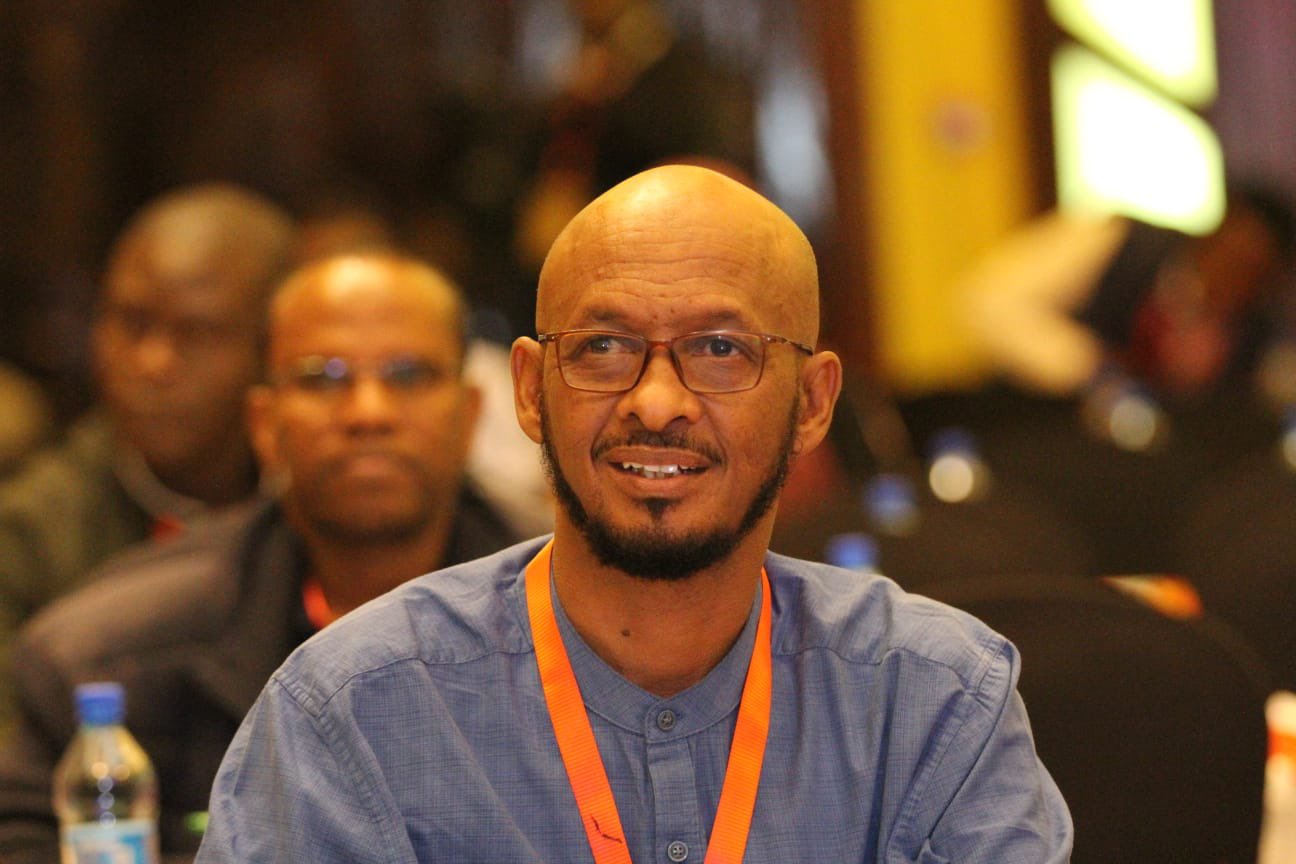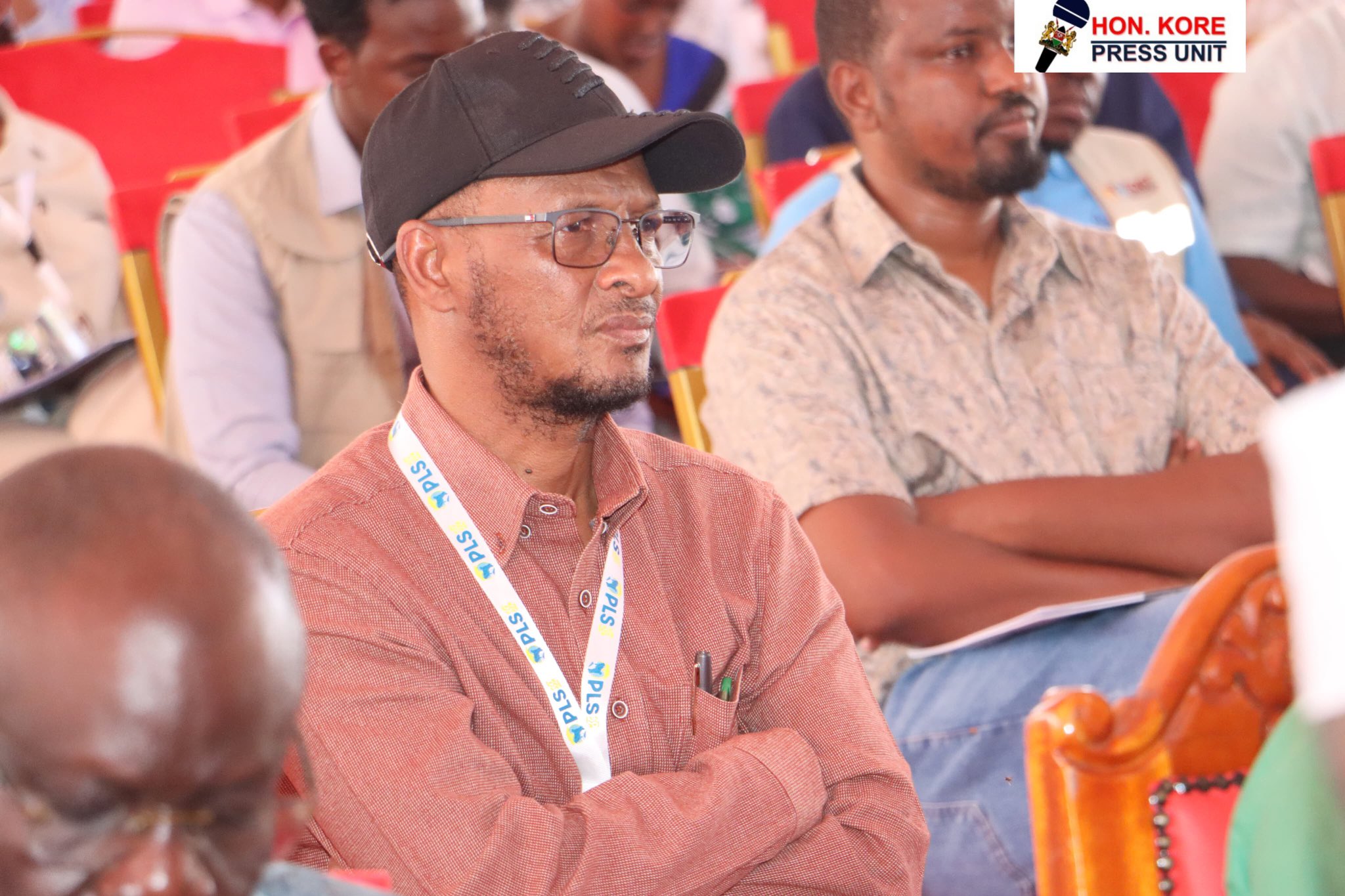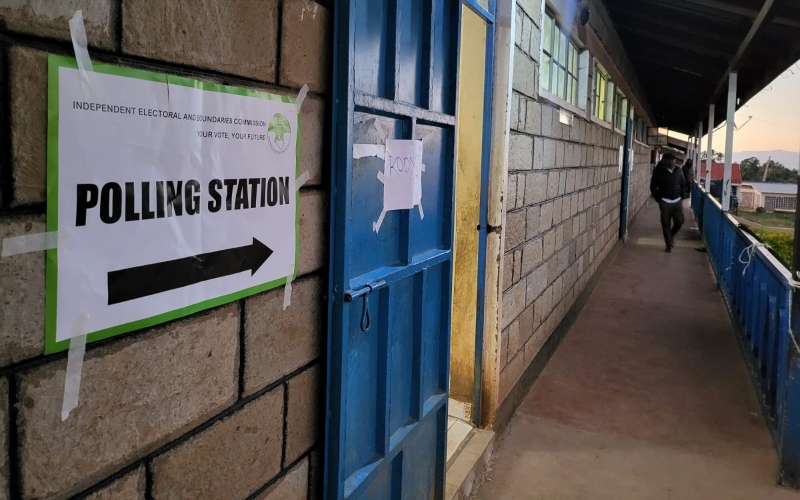MP Abdul Haro: UDM Party key to securing resources for marginalised North Eastern region

The Eastleigh Voice Reporter Barack Oduor spoke to Mandera South MP Abdul Haro on the role of the United Democratic Movement (UDM) Party in changing the fortunes of the region and what it takes.
In the just concluded Pastoralist Leadership Summit in Wajir County, leaders from North Eastern pledged to find ways of unlocking policy and financial bottlenecks to mainstream Pastoralism in Kenya.
The Eastleigh Voice Reporter Barack Oduor spoke to Mandera South MP Abdul Haro on the role of the United Democratic Movement (UDM) Party in changing the fortunes of the region and what it takes.
More To Read
- Somalia declares drought emergency as millions face hunger after failed rains
- Murkomen warns politicians against deploying supporters to by-election tallying centres
- WFP warns of hunger crisis in Nigeria as 35 million face food shortages
- Somalia faces worsening hunger with millions needing assistance
- North Eastern Commissioner urges multi-sectoral cooperation to bolster regional security
- New 1MW generator boosts Wajir’s power supply, promises relief from frequent blackouts
Q: Leaders from the North Eastern Region are joining efforts to change the region's story through various lobbies and caucuses. What is the role of the leadership of the United Democratic Movement (UDM) Party in this?
A: For the first time in the history of a North Eastern county, the Somalis who have been accused of being unloyal have gone out of their way to prove that they are not only loyal but they are also willing to actively participate in the political processes in this country. That is why the former Mandera Governor (Ali Roba) are rooting for that party, which is a national party but the leadership is from that region.
The party identifies with the contextual issues that affect the issues of the North Eastern region. This is an act of genius because I think we have seen the value of having your party. We are the fifth-largest party in this country in terms of parliamentary strength.
We are urging all leaders and people from the northeast to join this party and strengthen it so that we can use it as a vehicle for negotiating for resources for that region.
Somalis have been divided for a very long time along clan lines and petty issues. The successive governments had perfected the art of pitting Somalis against Somalis. For instance, the people of Garissa are pitted against the people of Wajir and the people of Wajir against the people of Mandera. The cycle has been like this for a very long time but now it's going to be a thing of the past because of the current crop of leadership we have.
 Mandera South MP Abdul Haro. (Handout)
Mandera South MP Abdul Haro. (Handout)
Q: Leaders from North Eastern have been asking for assistance from the national government during catastrophes such as floods and droughts. When will a sustainable or permanent solution be found to these challenges?
A: The Elnino rain flooding that happened last year has shown us that the North Eastern region can be cut off from the rest of the country for weeks. This is because the roads and bridges were swept away and the region couldn't be accessed both by air or road for three weeks. It was three weeks of horror and it opened our underbelly as leaders as a nation.
Imagine! 60 years after independence and a region like North Eastern cannot be accessed because of floods? Because of the lack of roads? So when you think you have peace and you have indicators of all those situations that ignite violence then you are called non-peaceful. In that region, we are inaccessible because of the poor infrastructural network.
Q: Budgeting of national government projects has consistently been unfavouring Northern Kenya in terms of mega life-changing projects. What has the leadership from Northern Kenya done about this?
A: For instance, if you look at roads, we have been told that some constituencies or roads have key people in decision-making organs. For example, a single constituency can boast of Sh15 billion for roads in a year while others go without a cent. This is now what we call historical marginalisation.
Unless we change how we view the North Eastern and how we distribute development to the region and country then we will be continuing perpetuating this neglect. Another issue is electricity. Electricity controls almost all sectors of the economy yet we lack its concentration in the North Eastern.
Q: What do you mean? What is the percentage of electricity household connectivity in your constituency?
A: It's absolutely zero. We are not connected to the national grid. Our people depend on diesel generators that stall now and then. As I speak with you now, the biggest urban centre in the constituency called Elwak town is experiencing a blackout.
My constituents are taxpayers too, but it seems in this country some taxpayers are more equal than others.
If you go to some parts of this country such as the highlands that enjoy plenty of rain, there is piped water going to every home and good roads, and when a donor comes to construct dams, they are directed to the very places with these advantages instead of directing them to dry places like North Eastern.
Q: There has been a perennial insecurity problem in the North Eastern, especially around the border with Ethiopia and Somalia. The leadership of the region has been calling on the national government to ensure there is a lasting solution to this problem. What makes it difficult to curb insecurity?
A: When you talk of security or insecurity, which security are you talking about? It is security for who and by who? Who is supposed to provide that security? If you are thinking of providing security for the state by the state, then you will have the problems we are having today. But if you are thinking of providing security for the people, that is the organs which are mandated to provide security for the people, we can have a conversation where we can agree somewhere.
Q: Which kind of conversation is this? Please explain further Sir.
A: Security starts with all of us. You cannot make policies on insecurity without consulting the people. The people living along that border should be consulted. The government should also invest in local intelligence gathering because most of the time, the people share vital information with the state organs, and nobody acts on it, yet when something happens, the same people are blamed.
Top Stories Today














































